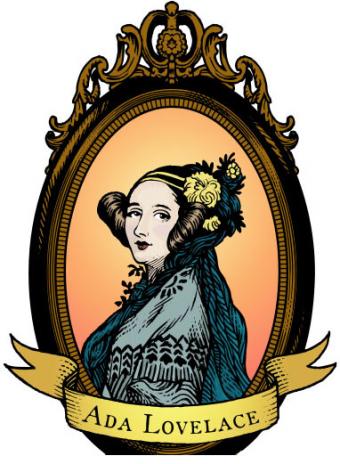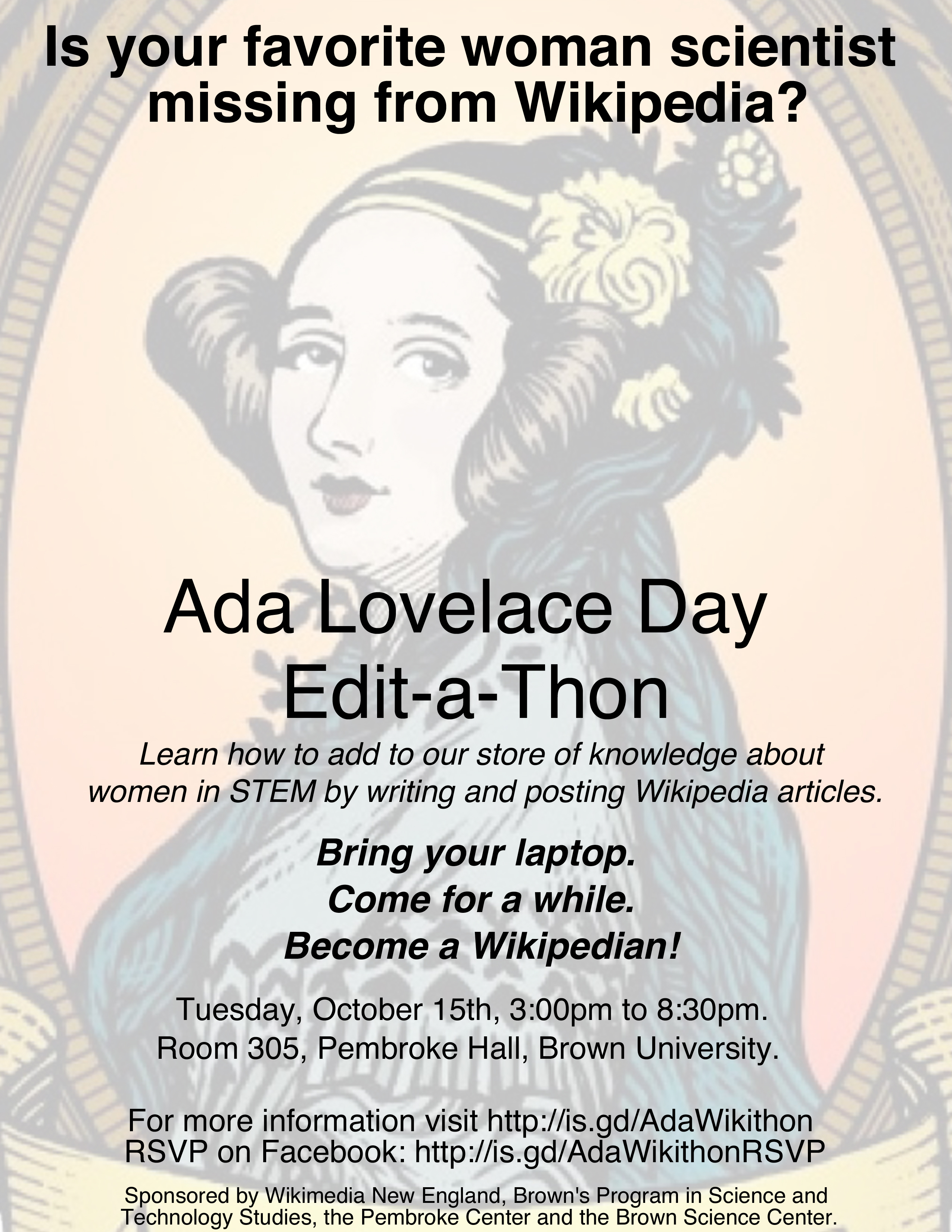PROVIDENCE, R.I. [Brown University] — In 1971, three decades before Wikipedia, but more than a century after Ada Lovelace penned the first computational algorithm, Anne Fausto-Sterling came to Brown as a young assistant professor of biology. Almost immediately she encountered the demeaning deficit of recognition that has hindered generations of women in science.
“I and the few other women faculty there had started working on developing a women’s studies program,” said Fausto-Sterling, now the Nancy Duke Lewis Professor of Biology. “At one point I was taken out to lunch by a senior history professor. I think he meant well and was trying to be encouraging but the way he encouraged me was to say, ‘It’s really exciting that they’ve hired a woman scientist but this is the first time it’s been possible because before your generation there were none.’”
He was wrong, of course, but women were relatively hard to find in science and engineering departments of universities. Even 30 years later, despite substantial progress, women remained a minority among faculty. Between 1973 and 2003, male Ph.D. holders employed in full-time junior faculty positions rose from 26,000 to 31,400 while the number of female Ph.D. holders in junior faculty ranks increased from 3,300 to 21,400, according to the National Academy of Sciences.
Such was the context of Maia Weinstock’s generation. A human biology concentrator at Brown in the late 1990s, Weinstock had a female adviser: Fausto-Sterling. She graduated in 1999, became a science journalist and then an editorial director for the educational site BrainPOP. As she used Wikipedia in her research, she too encountered the ongoing lack of recognition of women in science, but in a more Internet-Age kind of way.
“I was looking for interesting tidbits about historical events and people who played roles in them,” Weinstock said. “Every day of the year has a page. There were extremely few women who were noted among the most notable events.”
Eager to set straight the universal reference that Wikipedia has become, Weinstock began to organize Wiki-edit-a-thons – she’s done four so far – in which volunteers could gather to create and expand upon entries about women in science and technology.
This year with Fausto-Sterling’s help – they recently reconnected via Twitter – Weinstock is bringing an edit-a-thon to Brown on Ada Lovelace Day, Oct. 15. The event is co-sponsored by the Science and Technology Studies Program, the Pembroke Center, and the Science Center.
From 3 to 8:30 p.m. anyone is welcome to bring a laptop to Pembroke Hall Room 305 to learn how to edit a Wikipedia page and then to do just that.
The event’s wiki site suggests women scientists who could use a new or significantly expanded Wikipedia page, so people planning to join the effort can gather sources and do some homework in advance. Fausto-Sterling has been doing just that for Cornell science historian Margaret Rossiter, whose Wiki entry is a mere “stub.”
Although Wikipedia is crowd-sourced, it still demands real sources. The requirement that entries rely on publicly verifiable scholarship is part of what ensures that Wiki editing remains a social good, rather than a means for people to turn the site into billboards for subjective rhetoric.
Organizing Wikipedia editing sessions as a means of social change has become a movement on college campuses, including at Brown. Wikipedia editing is part of the curriculum of the Modern Culture and Media class “Dialogues on Feminism and Technology,” taught by visiting lecturer Megan Fernandes.
Meanwhile, the University California at San Francisco’s medical school offers course credit for improving the quality of health information via Wikipedia editing.
Fausto-Sterling notes that any underrepresented group or underserved cause can do this.
“It has a kind of guerilla warfare aspect to it that appeals to me,” Fausto-Sterling said. “I go back to the ’60s in terms of my activism. Anybody can do it, but in addition to having metaphoric value it has a real corrective value.”
For future generations
To many Wikipedia activists, the appeal of remedying disparities online comes from the idea that doing so can improve the context for future generations. Everyone should be able to look online and find many great examples of women scientists and engineers, Weinstock and Fausto-Sterling said.
“What we lose by not having a full panoply of information about women scientists is that we continue to perpetuate this idea that this historian had that women haven’t done science at the same level as men or are somehow deficient in this area,” said Fausto-Sterling, who has spent years gathering books and news clippings that document women scientists. She plans to donate this archive to the University.
Edit-a-thons also train people who can continue this work for years to come, Fausto-Sterling added.
Weinstock agreed, but acknowledged that Wiki editing is just one step among many needed to continue the progress of women in science.
But at least next week, because of the efforts made at Brown University, many more women scientists will have joined the company of Ada Lovelace on Wikipedia, bringing them the recognition they’ve deserved, but haven’t had, before.


